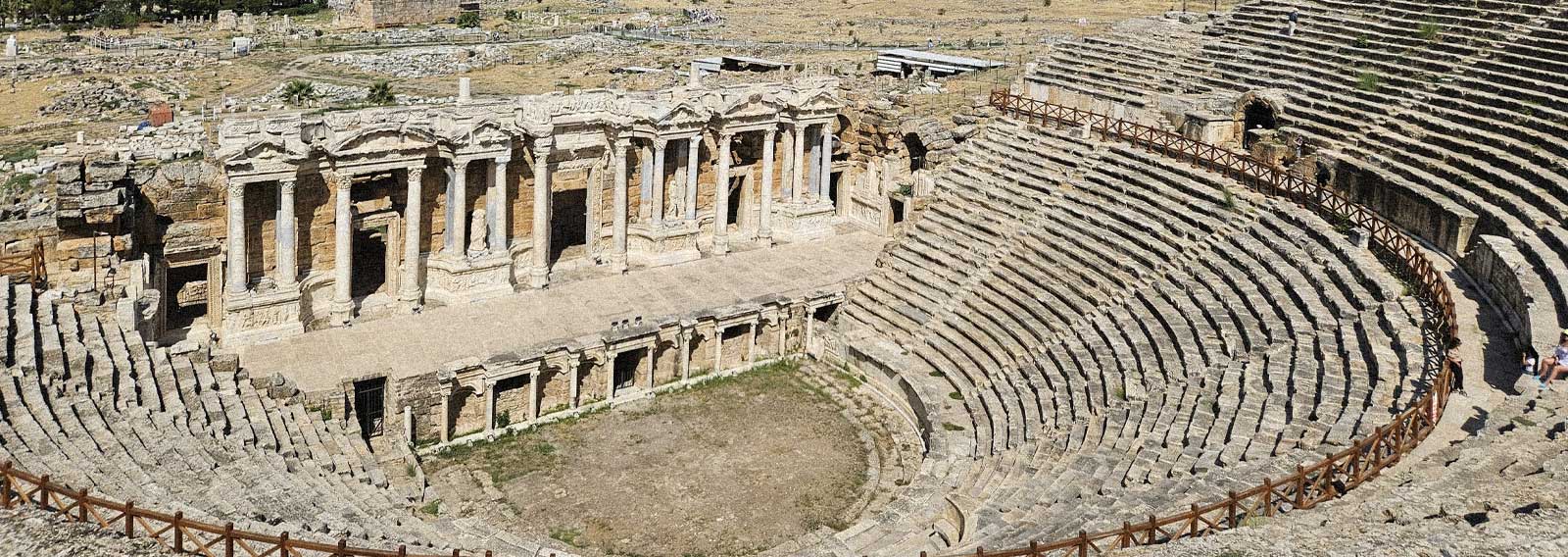Like so many others, I was part of two major counter-cultures in my youth. From around the age of 15 to 18, I was heavily involved in the 60s counter-culture with its rebellion, rock music, drugs, new left politics, and all the rest. But when I was 18½ I was swept into an even more important and influential counter-culture: the Jesus Revolution. That phenomenon even made it as a Time magazine cover story in 1971.
With millions of young people getting into the hippy scene, the drug culture, the occult, and Marxist politics, God did not leave himself without a witness, and so many of us hippies became committed followers of Jesus Christ back then. I had my radical conversion in August of 1971. I have since told my story in this four-part article that begins here.
So it goes without saying that when I heard about the Jesus Revolution film being produced, I looked forward to seeing it since this would partly be my own story. Sure, there were many differences. For example, I did my hippy rebellion thing while still a high school student, while most others were college-age.
And lots of the real action happened in places like California, while I was from a small sleepy town in Wisconsin. Also, my initial journey took me to a commune in the mountains of New Mexico, not to Frisco or LA. And the leader in the New Mexico cult I was in (discussed in my testimony) came from California I believe, so he may have had some initial connection there.
But I did get to Calvary Chapel in Costa Mesa, California a number of times in the 70s. A big part of their outreach to hippies and others involved the regular concerts they held on Saturday nights, some of which I went to. I recall at one point when I was in California hitchhiking from Santa Cruz to Los Angeles, I was picked up by a pastor who was part of Calvary Chapel.
He told me that there was concern that many young people were coming just for the concerts, and not the Christian discipleship. So the leaders there were aware of this sort of danger early on. I agreed with his assessment. And I recall being at one service there where a former Playboy bunny gave her testimony. But that too could be an area of concern, where newly-saved celebrities are pushed too quickly into the public spotlight.
But Calvary Chapel continued to grow, with well over 1000 churches found around the world today. It has had its ups and downs and divisions, as sadly happens with many church groups and denominations. But some leaders, like Chuck Smith and Greg Laurie, have sought to stay committed and faithful as they proclaim the Christian gospel.
As to the film, it is based on the 2018 book by Laurie, a popular pastor and speaker. He was born a month earlier than I, and was saved a year earlier than me at age 17. The film looks at his journey and how Chuck Smith and the Calvary Chapel ministry developed from humble beginnings in the late-60s and early 70s, and had such a huge influence.
For a religious film, it is doing very good indeed. In North America it has fared quite well:
In the United States and Canada, Jesus Revolution was released alongside Cocaine Bear, and was initially projected to gross $6–7 million from 2,475 theaters in its opening weekend. The film made $7 million on its first day (including $3.3 million from previews from the days leading up to its release), raising weekend estimates to $14 million. It went on to debut with $15.8 million, finishing in third place. In its second weekend it made $8.7 million, continuing to outperform expectations, finishing in fifth place. In its third and fourth weekends the film made $5.1 million and $3.5 million, respectively, to pass $40 million and briefly become the highest-grossing Lionsgate movie since 2019. The film eventually passed $50 million.
And it is not just doing well there, but even here in Australia. Warwick Marsh of the Canberra Declaration says this about how well it is performing:
Jesus Revolution began screening in Australian cinemas on Thursday, but it’s already had a big impact. It launched in over 160 theatres – which is double the normal number for a faith film. It’s the biggest-ever launch of a faith film in Australia! On its opening day, the movie ranked as the number nine top cinema showing in Australia and number seven in New Zealand! https://blog.canberradeclaration.org.au/2023/04/22/the-biggest-ever-launch-of-a-faith-film-jesus-revolution/
My take on the film
My wife and I just returned from seeing the film. I don’t see too many movies, and I am aware that often Christian films are not of the greatest quality. But this movie seems to be well-done and well-acted, although I make no claims to being any sort of film critic. And some of my thoughts may be worth recording here.
The movie did bring a few tears to my eyes, as it did take me back – way back. Familiar themes and characters were all there: the hippy and drug cultures, Timothy Leary, the Grateful Dead, Janis Joplin, Haight-Ashbury, and so on. The contrasts were highlighted: the straight culture versus the hippy culture, and straight Christians versus hippy Christians.
Early on Pastor Chuck Smith had to navigate trying to keep some of his older and more conservative parishioners in his small church on side, while seeking to welcome in the barefoot hippies. As one personal aside to all this, when I got saved as a wild hippy, and then helped to lead some of my hippy friends to Christ, we settled into an evangelical church back in Wisconsin.
Years later the pastor’s daughter told me this: when we would all come in, long-haired, often barefoot, and likely needing a bath, and go up and sit in the front row, with pen and paper to eagerly take notes on the sermons, the church was a bit startled by all this. But the pastor had told them that they must not say anything about the way we looked or dressed, but just seek to love us and welcome us.
Of major importance is the story the film tells, based as it is on true events, with some of the main characters still alive today. It of course reminds me so very much of my own story, and it is so exciting to know that even when times seem to be getting so very dark, God is still at work, and is able to raise up a small army of people to be salt and light.
A few further things can be mentioned. No move of God is foolproof, and flesh can enter in along with the Spirit. Mistakes can be made and excesses can occur. The film does not seek to sugarcoat things, and some real tensions and problematic issues are explored in the movie.
The great theologian and revivalist Jonathan Edwards knew all about this for example, and wrote often about it, seeking to help us sort the meat from the bones. So the Jesus Revolution was also not without its problems at times. See my afterword below for more on this matter.
And there were at least two quotes that stood out to me and I could strongly relate to. Given that a poor self-image and sense of failure has long been with me, these spoke to me. One involved something Smith’s wife said to him when he heavily doubted himself: “Don’t be so arrogant to think God can’t work through your failures.” And then there is this one when Smith says to Laurie: “Fortunately, God has a long history of using flawed people.”
One key thing the film reminds us of is the fact that whenever a spiritual revival occurs, or whenever just an individual is converted, there will always be an overwhelming desire to share your newfound faith with others. This is one of the sure signs of Christian conversion: to share the good news with as many folks as we can.
Indeed, in this morning’s Bible reading, I came across a familiar Old Testament story that presents the same message. It is found in 2 Kings 7 and tells us of a time of famine and starvation (see the end of chapter 6 for the gory details of just how bad things were). But four lepers end up finding a treasure trove of goods, including food and provisions. What is found in 2 Kings 7:8-9 is certainly worth featuring here:
And when these lepers came to the edge of the camp, they went into a tent and ate and drank, and they carried off silver and gold and clothing and went and hid them. Then they came back and entered another tent and carried off things from it and went and hid them. Then they said to one another, “We are not doing right. This day is a day of good news. If we are silent and wait until the morning light, punishment will overtake us. Now therefore come; let us go and tell the king’s household.”
When I and so many other battle-hardened hippies came to Christ and found new life, our one passion was to share that good news with others. I certainly did, and eventually, my mom and dad and sister and a number of hippy friends became Christians as well.
We can all thank God for the Jesus Revolution back then. So many people – including so many helpless and hopeless hippies – were swept into the Kingdom. I was certainly one of them. And needless to say, we need some more mighty moves of God like this once again in the spiritually hardened and morally calloused West. Please do it again Lord.
Afterword
Since one of the main figures of the film is the hippy preacher Lonnie Frisbee, who sadly went off the rails during his lifetime, Greg Laurie has recently written a piece on his relationship with him, warts and all. See here for more details on this famous but flawed individual.























